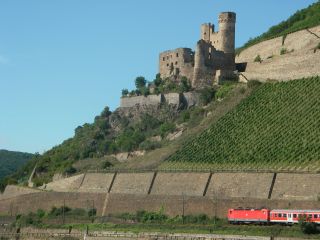 The world's most famous offshore radio station,,
The world's most famous offshore radio station,,May Day Weekend Broadcast
Radio Caroline is back on board the Ross Revenge for a full Bank Holiday weekend broadcast.Programs, live from our radio ship, will get underway at 2 O'clock on Friday afternoon, April 30th. To see the full schedule just click the link below. Once again if you live in the south Essex or north Kent area you'll be able to tune in on 531kHz AM, but SKY 0199 and our web streams will also be carrying programs from the Ross.
We're going to let you choose some of the music too. Each hour we'll be auctioning three classic tracks in "The People's Choice". You simply bid to hear the one you prefer. The track that gets the highest bid will get played at the end of each hour.
In the early nineties when our ship was still at sea, but silent, we tried to devise any way that we might get around the new Broadcasting Act. Then the colourful Chris Cary (Spangles Muldoon) made us an unexpected offer. Ever at the forefront, Chris had reinvented his successful Irish station Radio Nova as a satellite operation. While the public were almost entirely unaware that there even was such a thing as satellite radio, Chris hoped that with top name presenters, he could sell on his programming to other stations.

Chris Cary
The bold plan did not work and as he prepared to close down and minimise his losses, he had a few weeks of air time left that he made available to Caroline.
Ronan O'Rahilly warned that Chris was not a man to take a gift from, but the lure of being on air was too much to resist. Our taped programmes were soon being transmitted.Ronan was right of course and soon Chris was making his own Caroline broadcasts, selling his own Caroline merchandise and suggesting that the experiment could be ongoing if enough goods were purchased and if Ross Revenge was brought inshore. We had to withdraw from the arrangement.
Soon after, the enthusiastic Eric Wiltsher bounded in to the Caroline office, saying that satellite delivered radio was the future of broadcasting. Further we were called by the fledgling station Quality Europe FM, asking how we managed to get on air so easily.
Beyond thinking that it was very straightforward, we did not know the answer, so we directed the enquirer to Eric. Soon QEFM, which was intended to have been a local station for the Cheltenham area, launched on satellite, happily eating it's way through the investors money. Eric was an overnight broadcaster and a few times he gifted air time to Caroline with programmes presented by Johnnie Reece assisted by Peter Moore. Eric's assertion that the station had 12.8 million listeners seemed hopelessly optimistic and QEFM subsequently closed.
Later, Eric convinced the new broadcasting organisation Merlin Communications that satellite was the future and they commissioned him to start Merlin Network One, a hybrid SW and satellite air time broking operation. Ever kind to his friends, Eric invited Caroline and Country Music Radio and also Rock Radio Network, to take some free sample air time. We had two hours every Wednesday evening.
The business plan seemed unworkable. But the free air time was welcome.
Around this time, many criticised Caroline for not having taken the bold stance of E.K.R. This station, originally intended to be East Kent Radio, failed to get a local licence and hit back by re-jigging the initials to be European Klassik Rock. They, like others before, headed down the potentially disastrous satellite option.
Eric gave reasonable notice that our free time would soon be chargeable at £40 and hour, but this coincided with our man Nigel Harris explaining that the loss making EKR might sell Caroline some hours at a far more cost effective rate.
We defected to EKR with some weekend broadcasts, being warned by Eric that EKR could not possibly survive. In the event, both stations failed.

Mark Stafford's Caroline debut
Without much hope of success, we approached the EKR channel owner, saying that Caroline could give them 'some' money that might be preferable to having a channel making nothing at all. Further, we offered to hire the old EKR studio. Surprisingly and kindly, they agreed and this was the start of our first independent satellite venture.
Building up the hours from 16 to about 64 each week, before the company Flextech closed their analogue satellite facilities, we moved full time to a digital Polish satellite and finally to the Sky network.After broadcasting invisibly for a while on Monday 12th June 2006 we appeared on Sky channel 0199 - the number being a happy allusion to Caroline's broadcast wavelength in 1964.
We have always maintained that satellite radio is not sustainable in the conventional business sense. In addition to Nova, QEFM and EKR, Big L and station RTI seemed to have proved us correct.
Caroline survives — just — from loyal staff who work for no wages and loyal supporters who fund our essential outgoings. In this way we celebrate our first ten years on satellite, the longest continuous period of broadcasting that Caroline has ever enjoyed.
Words - Peter Moore

Dave Foster in the former EKR studio

Johnny Lewis back on the air again













